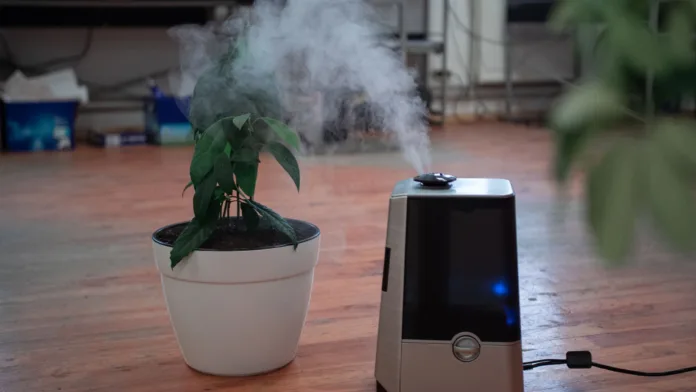Humidity is the measure of water vapor in the air, which is a crucial element of our environment. It is often a topic of discussion, with many people associating it with either positive or negative effects. However, the truth is that humidity can have both beneficial and harmful impacts on humans, depending on the level of humidity and the individual’s health.
First and foremost, humidity plays an essential role in maintaining our body’s hydration levels. When we breathe, our respiratory system releases water vapor into the air, which helps in keeping our airways moist. High levels of humidity in the air can aid in preventing dehydration and respiratory irritation, making it easier for us to breathe. In contrast, low levels of humidity in the air can cause dryness in our mucous membranes, throat, and skin, leading to various respiratory issues.
Moreover, humidity can affect our body’s ability to regulate temperature. During hot and humid weather, our body produces sweat to cool itself down. When the air is dry, sweat evaporates quickly, resulting in rapid heat loss, making us feel cold. Similarly, in cold and dry weather, the dry air removes the moisture from our skin, making it feel tight and dry, increasing the risk of developing cracked and irritated skin. In contrast, high humidity levels can make us feel hot and sticky, making it challenging to cool our bodies down. This can be particularly dangerous for individuals with heart and lung diseases, as the additional heat and humidity can put a strain on their bodies.
On the other hand, humidity can have positive effects on our respiratory system by reducing the spread of viruses and bacteria. Dry air can cause the mucus membranes in our noses and throats to dry out, weakening our first line of defense against pathogens. In contrast, humid air helps in keeping these mucus membranes moist, making it more challenging for viruses and bacteria to enter our bodies. Furthermore, humid environments can reduce the survival rate of airborne viruses and bacteria. Studies have shown that the flu virus survives longer in low humidity environments, making it more likely to spread and cause illness.
Another benefit of humidity is its impact on allergies and asthmatic conditions. High humidity levels can help in reducing the severity of allergies and asthma symptoms by preventing the spread of allergens in the air. Dust mites, mold spores, and other allergens are less likely to spread and cause allergic reactions in a humid environment. Furthermore, dry air can irritate the airways, triggering asthma attacks in individuals with respiratory conditions. Humid air can counteract this by keeping the airways moist and reducing the risk of asthma attacks.
However, too much humidity can also be harmful to human health. High levels of humidity can create a breeding ground for mold, bacteria, and other indoor pollutants. These can cause respiratory issues and aggravate allergies and asthma in sensitive individuals. In extreme cases, mold exposure can lead to serious health problems, such as coughing, wheezing, and even lung infections. Moreover, high humidity levels can also increase the levels of ozone in the air, which can be particularly harmful to individuals with lung diseases.
In addition to its impact on our physical health, humidity can also affect our mental well-being. High humidity levels can cause fatigue, lethargy, and lack of concentration, making it challenging to perform tasks that require mental focus and concentration. Moreover, humid environments can make individuals feel irritable and moody, affecting their overall mood and behavior.
In conclusion, the impact of humidity on human health is multifaceted. It plays a vital role in our body’s hydration levels, temperature regulation, and respiratory health. It can have positive effects on allergies and asthma, but also have harmful consequences if the humidity levels are too high. Therefore, it is essential to maintain a balance of humidity levels in our environment to reap its beneficial effects while minimizing its potential risks.

